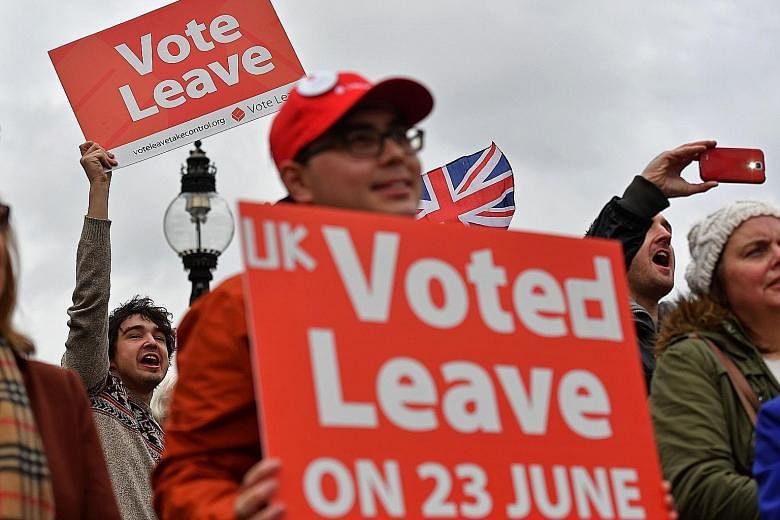LONDON • Britain's political elite wanted the referendum about the country's continued membership in the European Union (EU) to be a debate about economic choices.
But for most of the ordinary Britons who voted to get out of the EU, the main preoccupation was to regain control over Britain's borders, thereby stopping waves of foreigners coming from other EU countries.
In strictly legal terms, these are not immigrants, for EU citizens have a right to settle and work in all the 28 member-states.
And until fairly recently, Britain was one of the most welcoming nations on this score: It opened its borders to the new EU member-states from Eastern Europe much earlier than other wealthy European nations.
But this was a classic tale of good intent producing bad outcomes. For by opening its borders much earlier than it had to, Britain acted as a magnet to 3.5 million EU citizens who settled in the country over the past decade, a full 5 per cent of the country's population.
And there seemed no end in sight: Last year's net migration to Britain - the difference between inflows and outflows - hit a record high of 340,000, out of which at least half were EU citizens.
Britain's backlash against Europe's open borders was, therefore, utterly predictable. And it is increasingly the most important political driver in other European countries as well.
The continent is no stranger to nationalist, anti-immigrant movements; they flourished in the 1970s when Europe last experienced a nasty economic shock and in even darker periods of the continent's history.
But the current backlash is altogether different.
It is a much more widespread, continent-wide phenomenon than before. EU governments now appear to be competing with one another as to who can impose tougher immigration controls.
Secondly, anti-immigration political platforms have moved from the fringes of national politics to the centre; it is now no longer a taboo to talk about immigration in overtly racist terms.
But the most important difference between the present wave of anti-immigrant feelings and previous movements of this kind is that the current generation of nationalists is more substantial in numbers and influence, having morphed from just making jarring noise on the sidelines of politics to becoming eminently electable. They have largely succeeded in persuading big shares of the European electorate that only radical measures can stop immigration, even if these violate existing EU treaties.
For the moment, the governments of all EU member-states continue to defend the principle of open internal borders.
But the fact remains that Britain's decision to withdraw from the EU in opposition to precisely this point has placed Europe's most significant and historic achievement in serious jeopardy. Jonathan Eyal
The most important difference between the present wave of anti-immigrant feelings and previous movements of this kind is that the current generation of nationalists is more substantial in numbers and influence, having morphed from just making jarring noise on the sidelines of politics to becoming eminently electable.



